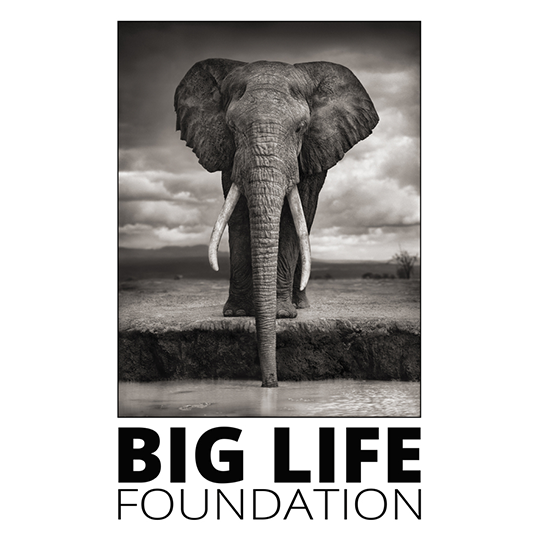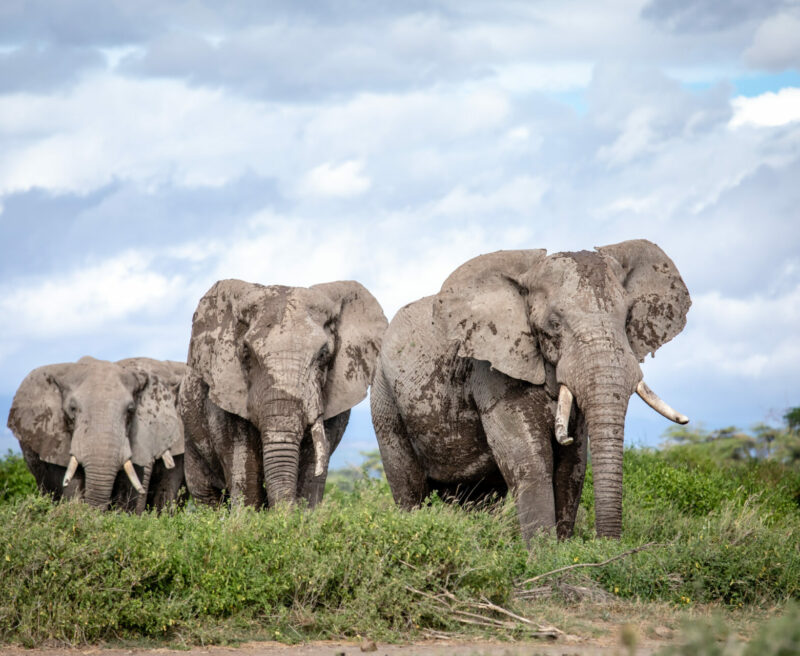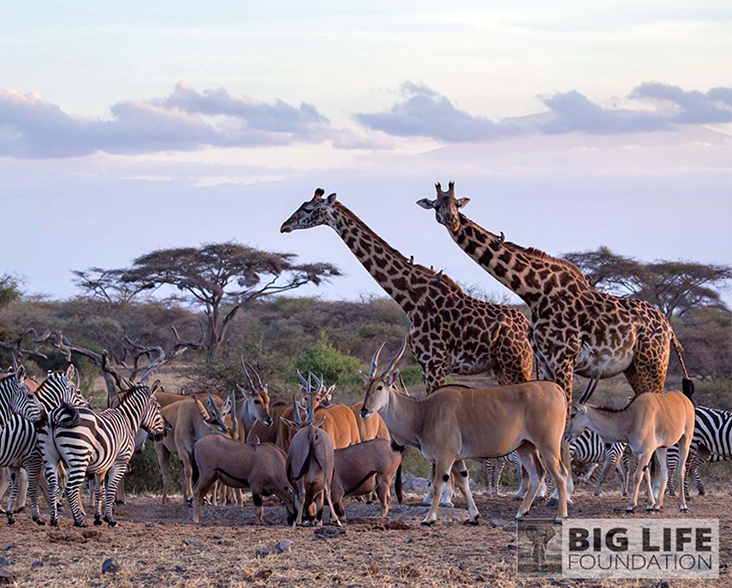MISSION
Big Life envisions a world in which conservation supports the people and people support conservation. Operating in Kenya and Tanzania, it seeks to protect and sustain East Africa’s wildlife and wild lands, including one of the greatest populations of elephants left in East Africa.
Big Life’s objective is to use innovative conservation strategies and collaborate closely with local communities, partner NGOs, national parks, and government agencies. Their program objectives are organised around four main themes: wildlife protection, human-wildlife conflict mitigation, habitat protection, and community support.


